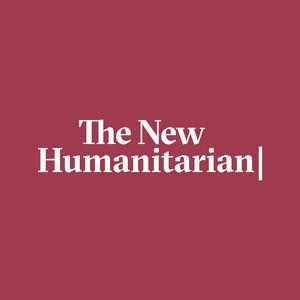Change is so incremental that it’s not happening | Power Shift
Power Shift is an experiment in dialogue that puts decision-makers in aid and philanthropy and those affected by their decisions in honest, one-on-one conversations about the aid sector’s inequalities. ___ In the second episode of Power Shift, we continue our candid conversation between Grand Bargain ambassador Michael Köhler, formerly a senior leader of the EU’s humanitarian aid arm, and Nadine Saba, founder of a Lebanese grassroots NGO. As the global humanitarian system faces unprecedented challenges – from donor cuts to accusations of colonial structures – they explore whether the system can truly be reformed, and if reform is enough. Saba speaks passionately from the front lines, sharing how communities are losing faith in a system that often delivers only "Band-Aid" solutions while failing to address – and often instigating – root causes. Köhler acknowledges the system's shortcomings while defending its foundational merits. “Would anything be better without the Grand Bargain? I think no. Would it be worse without the Grand Bargain? I believe, yes,” Köhler says of the major humanitarian reform process, “because we wouldn't have this kind of platform that reminds us [of] the need to get better, to reform, to open up, to share power.” Saba, who represents Global South NGOs, expressed doubt that there was sufficient will for the Grand Bargain to live up to its potential. "When things get difficult, people go back to old habits,” she argued Saba. “I do see that change is incremental. But I fear that it's getting so much incremental that it's not happening.” Their conversation reveals a fundamental tension between Köhler’s technical approach to humanitarian response, and Saba’s close-range exposure to the politics of crises. As this experiment in dialogue came to a close, Israel’s campaign of airstrikes in Lebanon loomed, lending greater urgency to Saba and Köhler’s attempts to come to a common understanding of what it would take to shift power in humanitarian response. ___ Subscribe on Spotify, Apple, or YouTube, or search “The New Humanitarian” in your favourite podcast app. You can find transcripts of all podcasts on our website. Are you or anyone you know interested in participating in future Power Shift conversations? Email us with the subject line ‘POWER SHIFT”.
